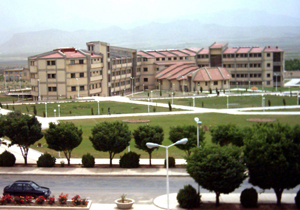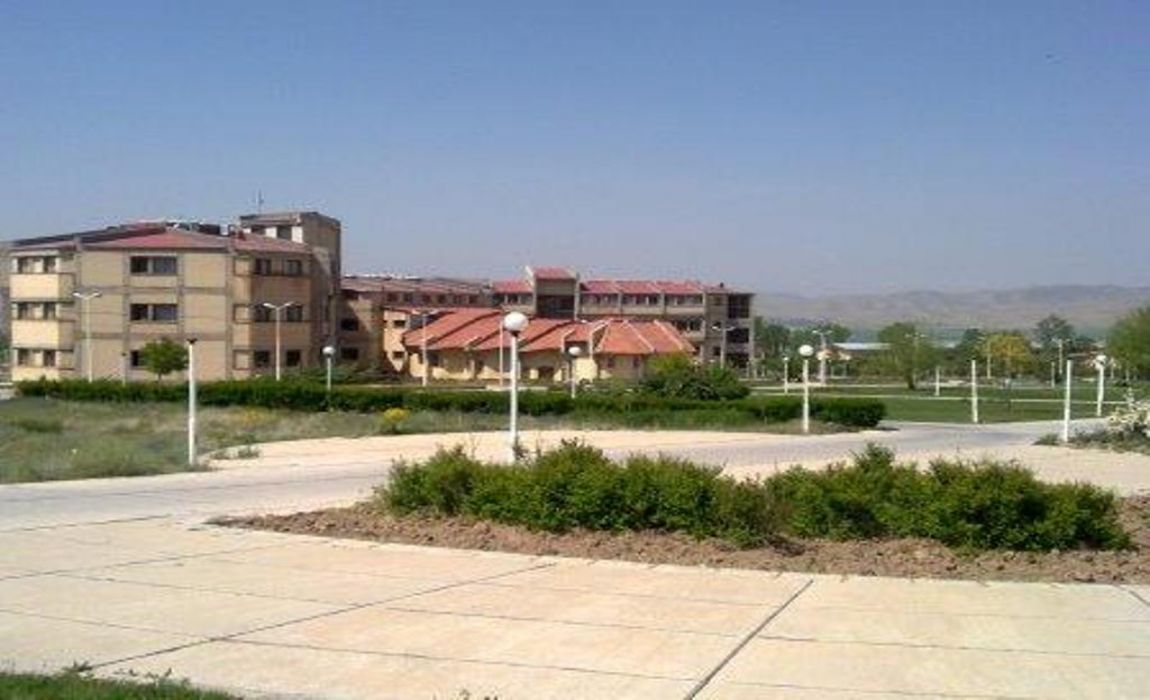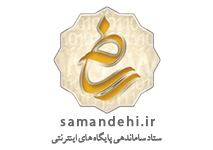We can shift academic culture through publishing choices
https://f1000research.com/articles/6-518/v1;
Abstract
Researchers give papers for free (and often actually pay) to exploitative publishers who make millions off of our articles by locking them behind paywalls. This discriminates not only against the public (who are usually the ones that paid for the research in the first place), but also against the academics from institutions that cannot afford to pay for journal subscriptions and the ‘scholarly poor’. I explain exploitative and ethical publishing practices, highlighting choices researchers can make right now to stop exploiting ourselves and discriminating against others.
Corresponding author: Corina J Logan
How to cite: Logan CJ. We can shift academic culture through publishing choices [version 1; referees: 1 approved, 2 approved with reservations]. F1000Research 2017, 6:518 (doi: 10.12688/f1000research.11415.1)
Copyright: © ۲۰۱۷ Logan CJ. This is an open access article distributed under the terms of the Creative Commons Attribution Licence, which permits unrestricted use, distribution, and reproduction in any medium, provided the original work is properly cited. Data associated with the article are available under the terms of the Creative Commons Zero “No rights reserved” data waiver (CC0 1.0 Public domain dedication).
Competing interests: CJL is an (unpaid) Associate Editor at Royal Society Open Science.
First published: 20 Apr 2017, 6:518 (doi: 10.12688/f1000research.11415.1)
Latest published: 09 Jun 2017, 6:518 (doi: 10.12688/f1000research.11415.2)
The problem
In December 2016, over 100 UK universities signed away over £۲۰۰ million (Gowers, 2016) to the publishing giant Elsevier so researchers at those institutions that can afford it can read their own research. However, it costs only $1.30–۳۱۸ to post and preserve a PDF on the internet (Bogich et al., 2016), which is essentially all that is needed for modern publishing. How did academic publishing become dissociated from the actual cost of publishing?
The cause of the problem is multifaceted; however, I argue that researchers have played a key role because they pursue prestige, which has further distanced researchers from understanding how publishing works and how much it costs. Current incentive structures pressure researchers into pursuing prestige to advance their careers – a cultural tradition that is maladaptive because it leads to poor research methods and practices (e.g., Edwards & Roy, 2017; Lawrence, 2016; Nosek et al., 2012; Smaldino & McElreath, 2016). Much attention has been given to this topic elsewhere, therefore I will focus on how researchers can instigate a cultural shift to change the incentive structure by valuing the improvement of research rigor through ethical publishing.
The publishing landscape has had the potential to change rapidly since the internet made communicating results cheap and easy, and many options now exist to place the focus back on increasing scientific rigor. Publishers represent a large industry in which each researcher might feel like they play a small and insignificant role. Researchers focus on their research and the myriad of other time demanding activities needed to attempt a career in academia, leaving no time to conduct the meta-research needed to unpack how large publishers hide what they do. I present this meta-research here by explaining two contrasting routes to publication: exploitative and ethical.
Exploitative route to publication
Exploits researchers and academia
When a paper is accepted at a journal that will put it behind a paywall (i.e., require a journal subscription to read), we researchers are excited and think it was free because it cost us nothing. However, academia (i.e., university libraries) pays an average $5000 per article on our behalf through subscription fees, which results in a 37% profit margin for Elsevier for example (van Noorden, 2013), whose goal is to maximize profits (Figure 1A). The goal of academia is to share research, which is in direct competition with the publisher’s goals of making profits.
Publishers obtain the product (the journal article) for free, as well as many of the services involved in the peer review of the product (e.g., volunteer editor and peer reviewer time). It is estimated that the global academic community contributes £۱٫۹ billion per year in kind so their researchers can serve as peer reviewers (Research Information Network, 2008). After obtaining these free products and services, publishers sell our research back to us at a profit.
Discriminates against the public and other researchers
When the paper is published, only individuals at institutions that can afford journal subscriptions can read the research. This is a form of indirect discrimination, which is “a practice, policy or rule which applies to everyone in the same way, but it has a worse effect on some people than others” (Citizen’s Advice, 2017). Therefore, we not only discriminate against the public (who usually pays for our research in the first place), we also discriminate against other researchers and the ‘scholarly poor’ (e.g., medical doctors, dentists, patients, industry, politicians) when publishing behind paywalls (Murray-Rust, 2011; Tennant et al., 2016). This violates anti-discrimination policies that exist at most universities.
Further, staff at the World Health Organization (HINARI http://www.who.int/hinari/en/) and the United Nations (AGORA http://www.fao.org/agora/en/) spend valuable resources trying to get low-income countries access to our research, rather than focusing on more pressing matters, such as feeding hungry people.
Additionally, whole research fields are discriminated against because their papers do not generate as many citations as papers in other fields (e.g., Falagas & Alexiou, 2008). If a generalist journal in the sciences accepts papers from less cited fields, their journal’s impact factor would decrease. The same problem exists in the humanities only here books are the research products and publishers are the gatekeepers. Consequently, generalist science journal and humanities publisher interests influence what research is conducted because this is the only kind they will publish.
Ethical route to publication
Keeps money inside academia
When a paper is accepted at a 100% open access (OA) journal, an article processing charge (APC) is incurred or there is no cost depending on which journal a researcher chooses (Figure 1B). APCs are paid by researchers, their funders, or their institutions. The researcher, not the publisher, decides how much is being paid to publish an article by choosing a journal with an APC they can afford.
Choosing a 100% OA journal is not enough. For money to stay inside academia, that journal must also be published by an ethical publisher. Ethical publishers are academic non-profit organizations, which ensure that profits are reinvested in academia, and for-profit corporations that charge no or low APCs and/or heavily invest profits in academia and/or are working to modernize publishing infrastructure (Table 1).
Editor and peer reviewer time are donated as in the exploitative route. However, the services go toward benefiting academia rather than decreasing publisher costs to maximize profits. In either publishing route, one can make their peer reviewing efforts more valuable to academia by making pre- and/or post-publication reviews public (e.g., via Publons.com, PubPeer.com, or a blog).
One common misconception is that publishing in journals owned by academic societies is always ethical. This is not actually the case because many society journals are not 100% OA and are published by exploitative publishers. For example, in the field of animal behavior, the Association for the Study of Animal Behaviour owns the journal Animal Behavior, which is a hybrid journal (not 100% OA) published by Elsevier. The Ethological Society owns the journal Ethology, which is also a hybrid journal and is published by Wiley. Both Elsevier and Wiley drain profits from academia (van Noorden, 2013). If your favorite journals are not on the ethical route, you can ask them to make their journal 100% OA and to change to an ethical publisher or use free open source publishing software (see Tennant et al., 2016 and www.corinalogan.com/journals.html).
Availability to read by everyone leads to additional benefits
OA articles do not discriminate against who can read them because they are freely available to read by everyone. This results in OA articles having more readers, citations, and media attention, and their authors benefit from more job and funding opportunities (McKiernan et al., 2016; Tennant et al., 2016). Additionally, OA journals with CC-BY licenses ensure authors retain the copyright to their research, and enable others to reuse the work (with credit) and mine the content (https://sparcopen.org/our-work/author-rights/introduction-to-copyright-resources/). This means that rather than simply gaining access to a PDF to read, individuals instead gain access to the information inside the PDF, such as the data, figures, and content.
Not all open access is equal
Just because an article is OA does not mean it is ethically published. Some subscription journals give researchers the option to pay APCs, which allows that article to be OA (a hybrid journal). However, hybrid APCs are more expensive than APCs at 100% OA journals, which exploits researchers and academia (Pinfield et al., 2015; Solomon & Björk, 2016). Moreover, many publishers ‘double dip’ by collecting APCs in addition to journal subscription fees for OA articles. These publishers charge more than once for the same article, further increasing their profits. Therefore, the ethical route to publication is also the cheapest option.
Ethical publishing is social justice for researchers and the public
Since researchers are primarily funded by the public, we have a responsibility to publish ethically (Edwards & Roy, 2017; Tennant et al., 2016). We are also responsible for creating a culture that values ethical practices that increase scientific rigor – a legacy we can leave to future generations.
Researchers can change the incentive structure by changing publishing choices
Funders are driving changes in incentive structures by requiring OA (e.g., Research Councils UK, Wellcome Trust, European Commission, Bill and Melinda Gates Foundation). Researchers can also drive change. One way forward is to connect researchers with the costs and consequences of our publishing choices and shift academic publishing away from exploitative models, which will also save academia millions. All of the options we need to publish ethically already exist, and at prices that fit a range of budgets.
Competing interests
CJL is an (unpaid) Associate Editor at Royal Society Open Science.
Grant information
CJL has a Leverhulme Early Career Research Fellowship from the Leverhulme Trust and Isaac Newton Trust.
The funders had no role in study design, data collection and analysis, decision to publish, or preparation of the manuscript.
Acknowledgments
I thank Laurent Gatto, Stephen Eglen, Peter Lawrence, Peter Murray-Rust, Rupert Gatti, Yvonne Nobis, and Erin McKiernan for manuscript feedback and discussions, and Ross Mounce for discussions.
References
Bogich T, Ballesteros S, Berjon R: On the marginal cost of scholarly communication. science.ai. 2016. Reference Source
Citizen’s Advice: Indirect discrimination. 2017. Reference Source
Edwards MA, Roy S: Academic Research in the 21st Century: Maintaining Scientific Integrity in a Climate of Perverse Incentives and Hypercompetition. Environ Eng Sci. 2017; 34(1): 51–۶۱٫ PubMed Abstract | Publisher Full Text | Free Full Text
Falagas ME, Alexiou VG: The top-ten in journal impact factor manipulation. Arch Immunol Ther Exp (Warsz). 2008; 56(4): 223–۲۲۶٫ PubMed Abstract | Publisher Full Text
Gowers T: Time for Elsexit? 2016. Reference Source
Lawrence PA: The Last 50 Years: Mismeasurement and Mismanagement Are Impeding Scientific Research. Curr Top Dev Biol. 2016; 116: 617–۶۳۱٫ PubMed Abstract | Publisher Full Text | Free Full Text
McKiernan EC, Bourne PE, Brown CT, et al.: How open science helps researchers succeed. eLife. 2016; 5: pii: e16800. PubMed Abstract | Publisher Full Text | Free Full Text
Murray-Rust P: The scholarly poor. 2011. Reference Source
Nosek BA, Spies JR, Motyl M, et al.: Scientific utopia: II. Restructuring incentives and practices to promote truth over publishability. Perspect Psychol Sci. 2012; 7(6): 615–۶۳۱٫ PubMed Abstract | Publisher Full Text
Pinfield S, Salter J, Bath PA: The “total cost of publication” in a hybrid open-access environment: Institutional approaches to funding journal article-processing charges in combination with subscriptions. J Assoc Inf Sci Technol. 2015; 67(7): 1751–۱۷۶۶٫ Publisher Full Text
Research Information Network: Activities, costs and funding flows in the scholarly communications system in the UK. 2008. Reference Source
Smaldino PE, McElreath R: The natural selection of bad science. R Soc Open Sci. 2016; 3(9): 160384. PubMed Abstract | Publisher Full Text | Free Full Text
Solomon D, Björk BC: Article processing charges for open access publication-the situation for research intensive universities in the USA and Canada. PeerJ. 2016; 4: e2264. PubMed Abstract | Publisher Full Text | Free Full Text
Tennant JP, Waldner F, Jacques DC, et al.: The academic, economic and societal impacts of Open Access: an evidence-based review [version 3; referees: 3 approved, 2 approved with reservations]. F1000Res. 2016; 5: 632. PubMed Abstract | Publisher Full Text | Free Full Text
Van Noorden R: Open access: The true cost of science publishing. Nature. 2013; 495(7442): 426–۹٫ PubMed Abstract | Publisher Full Text






